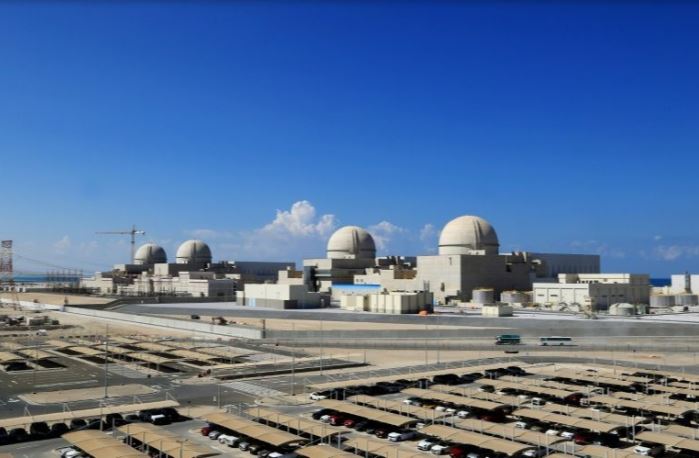
The oil-rich United Arab Emirates announced Wednesday that it has connected its Barakah nuclear power plant to the national grid in a new first for the Arab world.
The milestone follows the successful start-up of the plant's first reactor at the end of last month and launches the UAE on the road to meeting 25 percent of its electricity needs from nuclear power.
"The safe and successful connection of Unit 1 to the UAE grid marks the key moment when we begin to deliver on our mission to power the growth of the nation by supplying clean electricity, around the clock," said Emirates Nuclear Energy Corporation CEO Mohamed Ibrahim al-Hammadi.
"We are confident in our people and our technology to continue to progress to reach... the completion of the remaining three units, with the goal to power up to 25 percent of the UAE's electricity needs for at least the next 60 years."
The plant on the Gulf coast west of Abu Dhabi had been due to go online in late 2017 but faced a number of delays that officials attributed to safety and regulatory requirements.
The UAE has substantial oil and gas reserves, but with a power-hungry population of 10 million it has made huge investments in developing clean alternatives, including solar energy.
Barakah, which means "blessing" in Arabic, is a regional first.
Saudi Arabia, the world's top oil exporter, has said it plans to build up to 16 nuclear reactors, but the project has yet to materialise.
Barakah was built by a consortium led by the Korea Electric Power Corporation at a cost of some $24.4 billion.
More than 950 kilometres (nearly 600 miles) of 400 kV overhead power lines had to be built to link the plant to the grid.
Barakah's other three reactors are said to be almost ready for operation.
Construction work has already been completed on Unit 2, and Units 3 and 4 are respectively 93 percent and 86 percent complete.
The UAE lies just across the Gulf from Iran which has a nuclear power plant of its own outside the coastal city of Bushehr, as well as a controversial uranium enrichment programme.
The UAE has repeatedly said its nuclear ambitions are for "peaceful purposes" and has ruled out developing any enrichment programme or nuclear reprocessing technologies.
It has also moved to dispel any concerns over safety, underlining that the plant has welcomed more than 40 international reviews and inspection missions.
Nearby Qatar, the target of a boycott by Saudi Arabia, the UAE and others since June 2017, said last year the Barakah plant poses a "flagrant threat to regional peace and environment".






1732445375-0/Untitled-design-(9)1732445375-0-270x192.webp)


1732428810-0/Copy-of-Untitled-(3)1732428810-0-270x192.webp)
1732425487-0/BeFunk_§_]__-(42)1732425487-0.jpg)






COMMENTS
Comments are moderated and generally will be posted if they are on-topic and not abusive.
For more information, please see our Comments FAQ